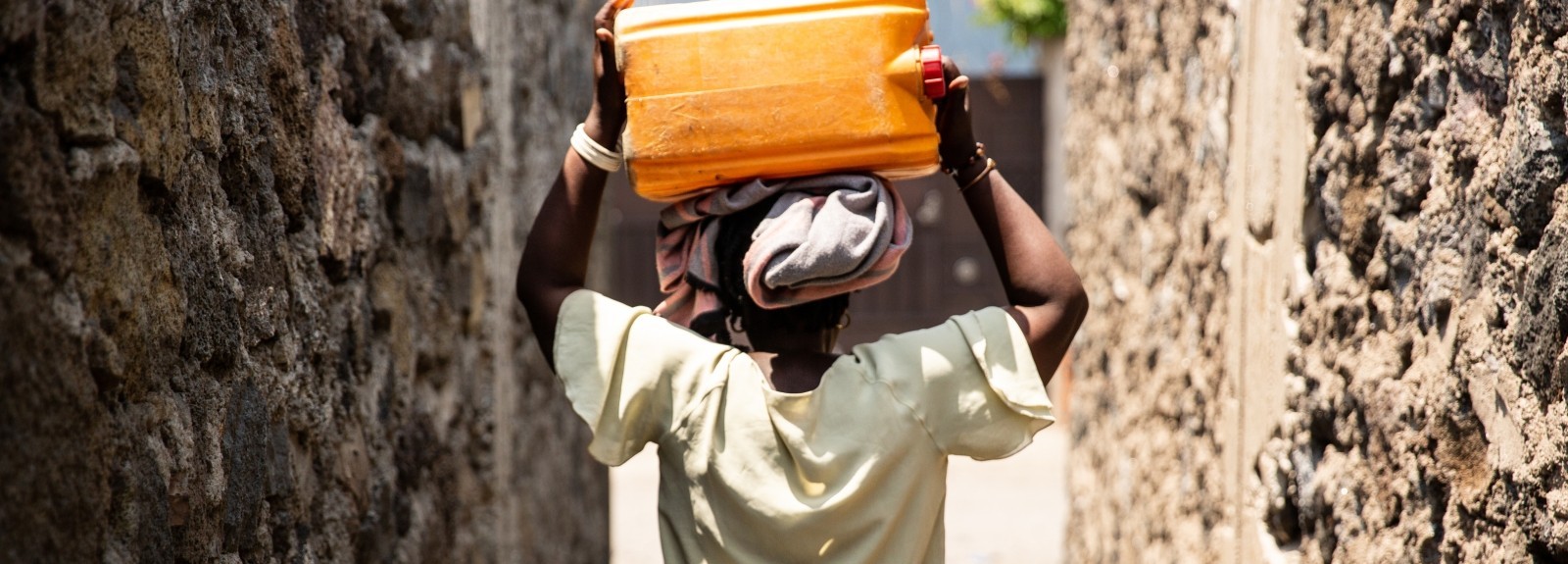Water is essential not only to health, but also to poverty reduction, food security, human rights and education. Despite the global target for clean water and sanitation through Sustainable Development Goal (SDG) 6, 2 billion people still lack access to safely managed drinking water at home.
The Corus International family of organizations is committed to addressing water, hygiene and sanitation (WASH) crises around the world. While prioritizing social behavior change, our WASH programming employs a public health approach to WASH in emergencies, as well as sustainable water resource management for long-term development.
Guided by IMA World Health’s long-standing expertise, the Corus family continues to integrate WASH interventions into livelihoods projects as well as into broader primary health care delivery and health systems strengthening initiatives. By engaging with government, health and community leaders, we seek to accelerate change to bring equitable WASH access to all.
Learn more about our water work through these global highlights:
DRC: WASH in emergencies
Renewed clashes in the Democratic Republic of the Congo (DRC) have forced hundreds of thousands of people out of their homes, worsening the already dire humanitarian crisis in North Kivu province. WASH needs are urgent across internally displaced person (IDP) sites, especially after a cholera outbreak was declared in December 2022 in the Nyiragongo health zone.
Temporary displacement site housing IDPs in Goma, North Kivu, DRC. (Kambale Jackson for Corus)
In response to critical WASH needs and to support cholera response efforts in displacement areas, Corus organization IMA World Health partners with fellow humanitarian actors to provide critical hygiene and sanitation inputs such as hand washing stations, latrines, showers, brooms and waste collection baskets. By increasing access to WASH for IDP and host community households in the Nyiragongo health zone, IMA World Health is committed to reducing mortality and morbidity rates from waterborne diseases.
The IMA World Health team demonstrates setting up and distributes handwashing stations in a temporary IDP shelter site in Goma. (Kambale Jackson for Corus)
Guatemala: WASH best practices
With one of the highest levels of chronic malnutrition in the world, food security is an urgent issue in Guatemala. Poor water quality is further compounding food security concerns - from the monitoring of 20% of the water systems in Guatemala, 54% were reported to be at high and imminent risk for human health.
Through the Improving Health and Nutrition in Guatemala’s Western Highlands project, Corus organization Lutheran World Relief partners with FundaSistemas to improve nutritional outcomes and strengthen agricultural development in the San Marcos department of Guatemala. Applying innovative behavior change methodologies, the project utilizes home visits, technical assistance and an arts-based community development (ABCD) curriculum to promote healthy food consumption, agricultural diversification, maternal and child health and WASH best practices. To reduce the incidence of diarrhea and other preventable diseases, families are benefitting from Ecofilters that provide sustainable access to clean water while also learning about household hygiene practices.
Yemen: Urgent WASH infrastructure
The humanitarian crisis in Yemen remains one of the most acute in the world with an estimated 4.3 million internally displaced people (IDPs) across the country. Access to water and adequate sanitation services for Yemeni families is critical.
Corus organization Lutheran World Relief partners with the Field Medical Foundation (FMF) to implement the Provision of Life-Saving Emergency WASH Support for IDPs project in Yemen’s Marib Governate. To ensure dignified living conditions, the project provides conflict-affected populations with urgent water, sanitation and hygiene support through emergency water supplies, installation of water points, mass hygiene promotion and hygiene kit distribution.
Mali: Safe waste management
Access to safe water, sanitation and hygiene can protect children against common water-borne diseases such as diarrhea and can also reduce stunting, which affects more than 26% of children in Mali.
IMA World Health works to improve the health of community members in central Mali’s Ségou Region through the Animal-Inclusive CLTS project, funded by the Osprey Foundation. By building upon the community-led total sanitation (CLTS) approach, the project is piloting a WASH model that incorporates effective animal waste management strategies to improve child and household health outcomes.
Feeding the family goats in the Ségou Region of Mali (Jake Lyell for Corus)
Kenya: Urban WASH transformation
Only 29% of Kenyans have access to basic sanitation. In Nairobi City County (NCC), inadequate water and sanitation are among the biggest threats to child survival and overall development.
A street in the Mukuru slums of Nairobi City County (Sean Hawkey for Corus)
Led by IMA World Health, the USAID-funded Afya Jijini project worked to improve access to and quality of health services in NCC. The project strengthened county-level institutional capacity to manage health services, including quality WASH services as a core approach to reducing child mortality. Afya Jijini introduced urban community-led total sanitation (UCLTS) as a transformative approach to behavior change around sanitation in NCC, leading to reductions in cholera disease outbreaks and increased social cohesion.
Michael Maithya, a health worker with Afya Jijini, speaks with a colleague at a Community Outreach Event in Kamukunji, Nairobi.

